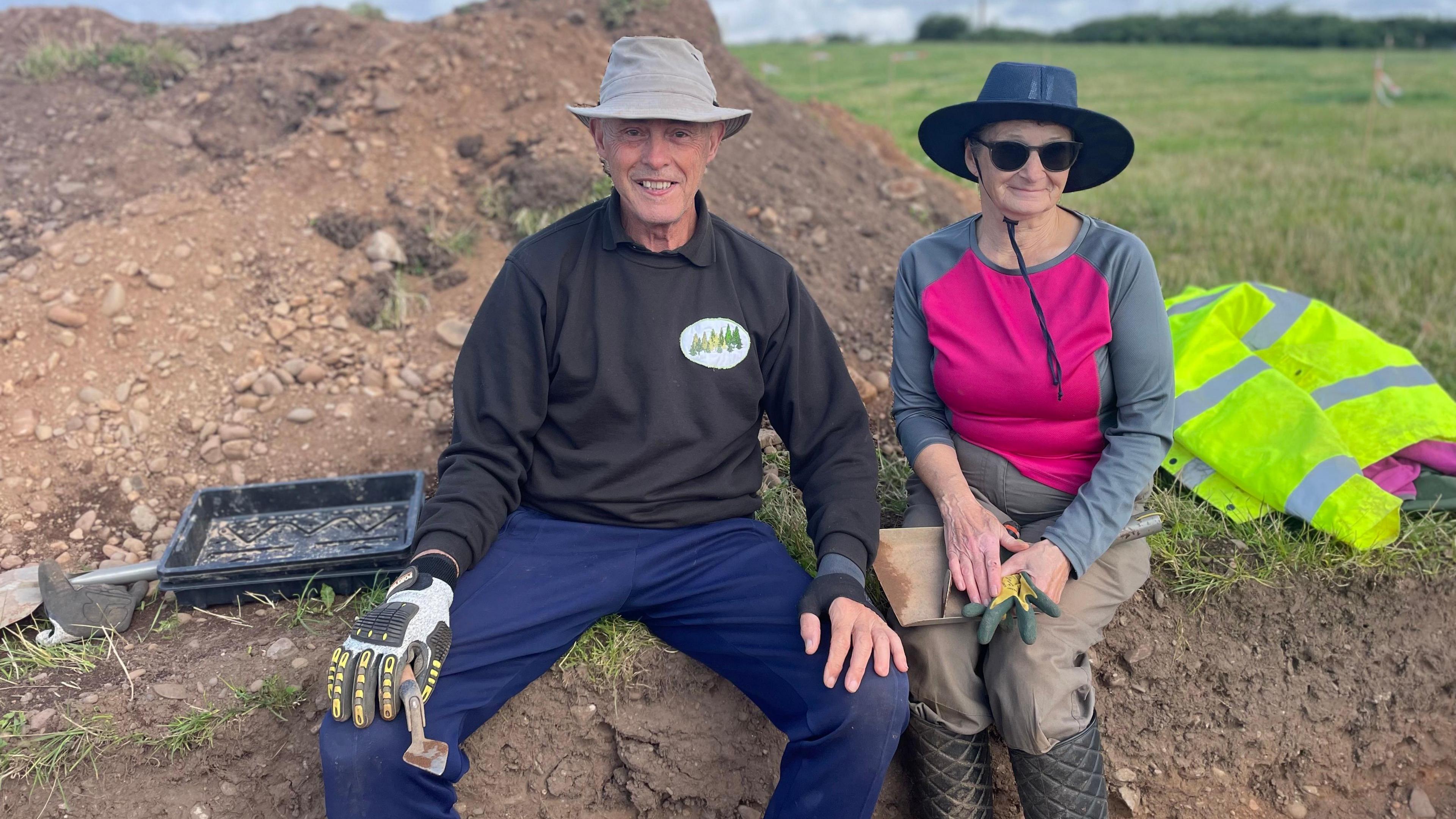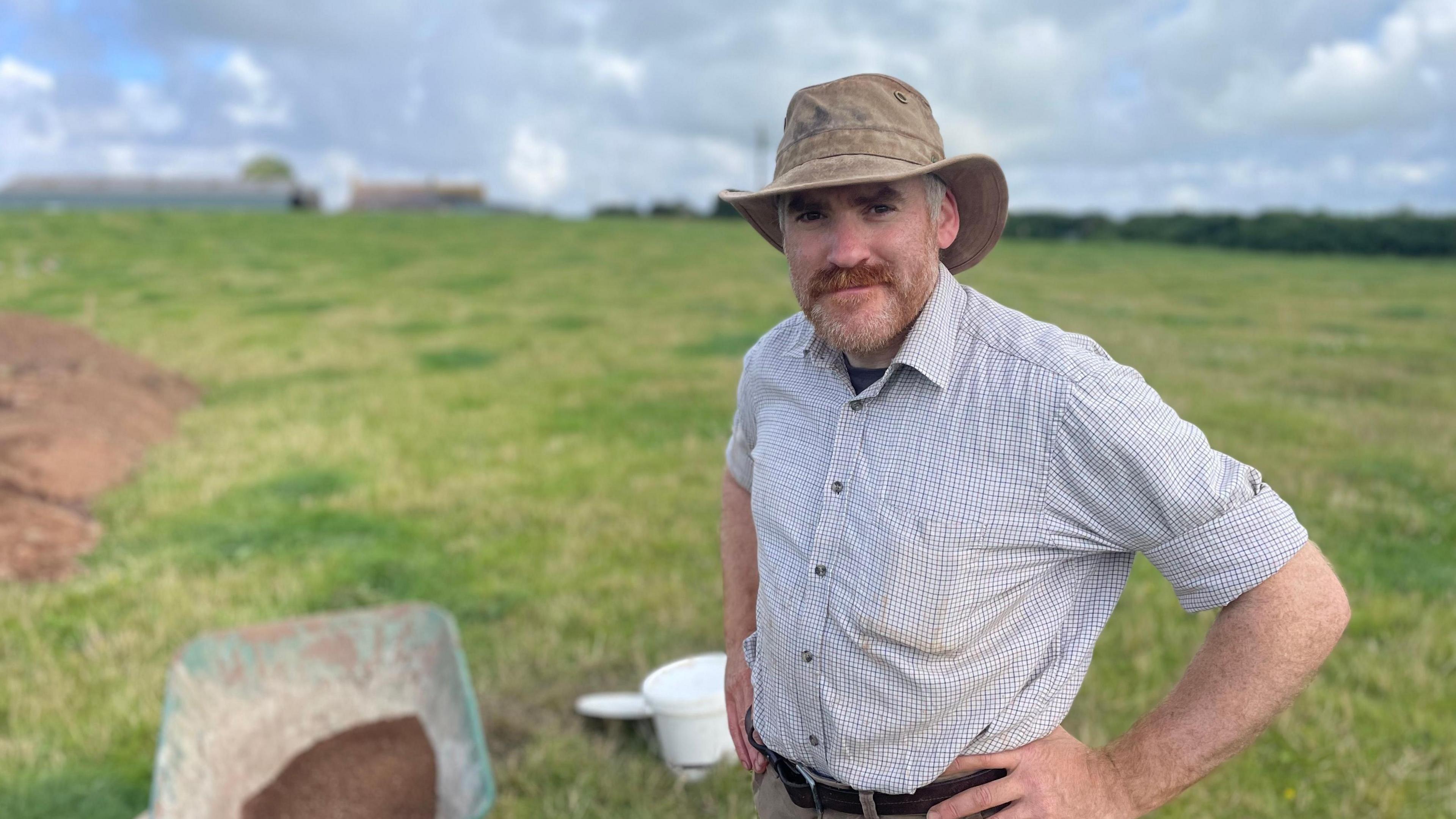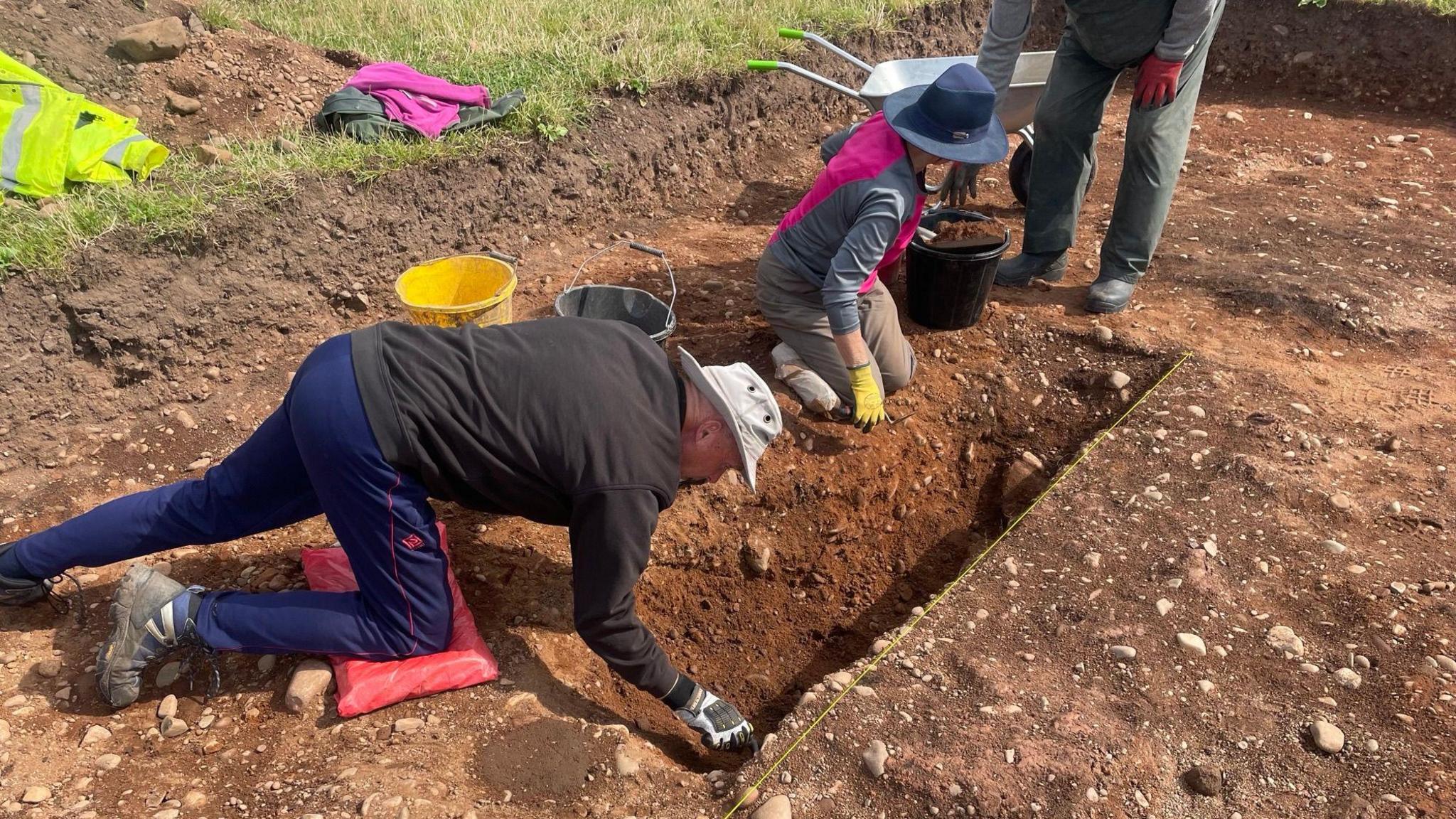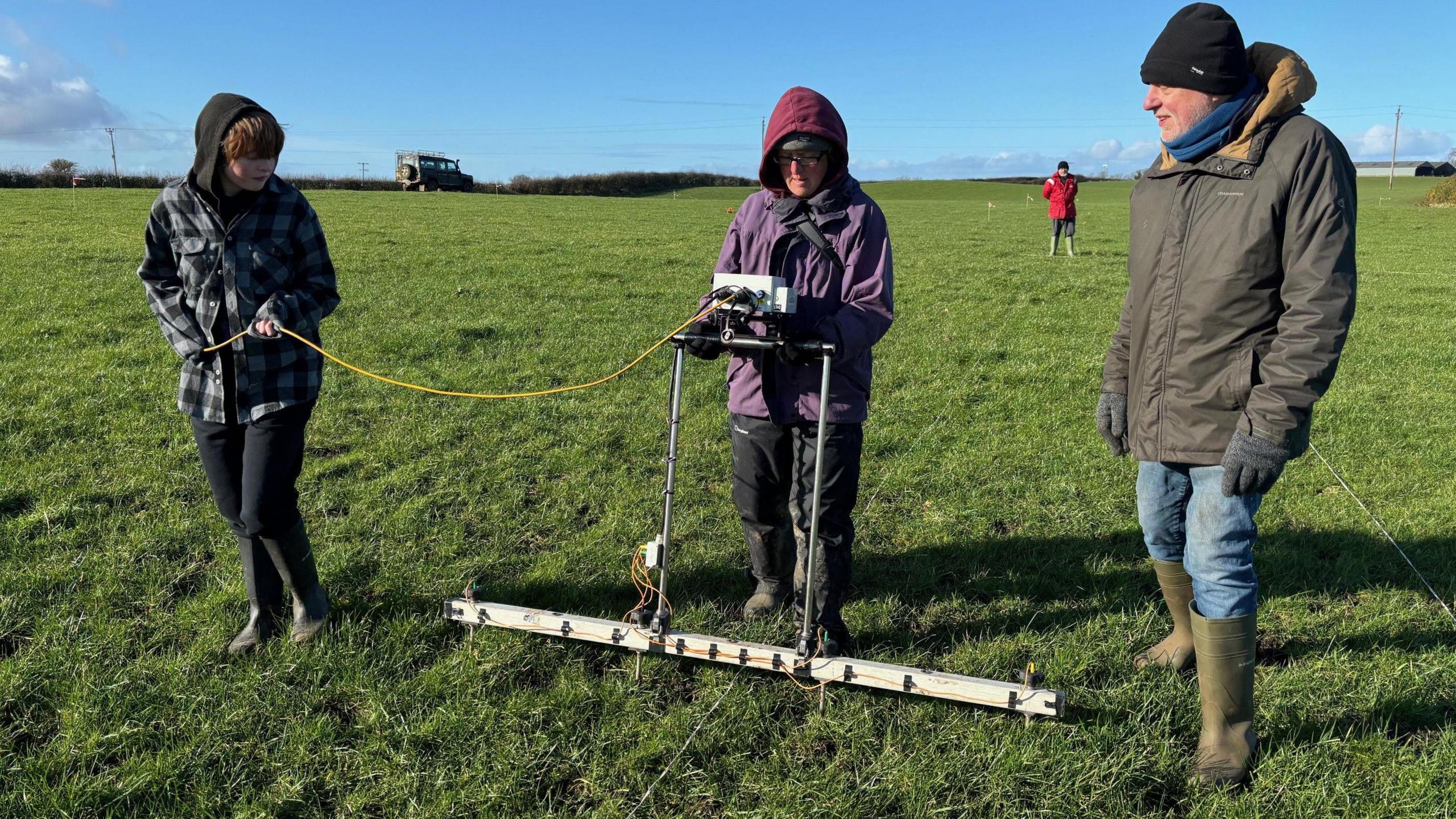Archaeological dig aims to unveil area's rural past

Arthur Graham and Jean Hill are volunteering at the dig at High Tarn Farm near Silloth
- Published
Volunteers working at an archaeological dig site are trying to fill a "huge gap" in knowledge about its rural past.
Crop marks were found at High Tarn Farm, near Silloth, Cumbria, indicating that a building may have been on the land, but its age is yet unknown.
Work with Historic England is now under way to find out about the significance of the site.
Archaeologist Mark Graham, of Grampus Heritage, said: "All archaeology is adding to knowledge and when you're out in a field like this, where there is no known site at all, that's filling in a huge gap in our understanding."
It is already known that part of Silloth was once the site of a medieval farm linked to Cistercian monks.

Don O’Meara from Historic England is working with volunteers at the dig at High Tarns Farm
Don O’Meara, of Historic England, said some progress was being made in understanding what the High Tarn site might have been used for.
"Here we're trying to extract the preserved remains of plants that we found on the site," he said.
"We've recovered thousands of tiny oat grains - there's clearly a lot of oat production going on and perhaps the structure might have been used to store that sort of material."
The project, funded through the DEFRA Farming in Protected Landscapes Scheme, also offers opportunities for volunteers to engage in local history, as well as connecting with like-minded people.

Oat grains have been found during the dig
Arthur Graham is Cumbrian born and bred, but now lives in Lincolnshire.
He often returns to the region to take part in archaeological digs.
"These people here are my friends and I met them through this," he said.
"I lived in Cumbria and we left young and you don't realise what's on your doorstep 'til you get to a certain age and you [start to] love history."
Volunteer Jean Hill said the digs were hard work, but the group enjoyed their time there.
"We work together and we have a good chat," she said.
"So at the end of the day, we can say 'that's our area and what have we found today'."
Follow BBC Cumbria on X (formerly Twitter), external, Facebook, external and Instagram, external. Send your story ideas to northeastandcumbria@bbc.co.uk.
Related topics
- Published7 July 2024
